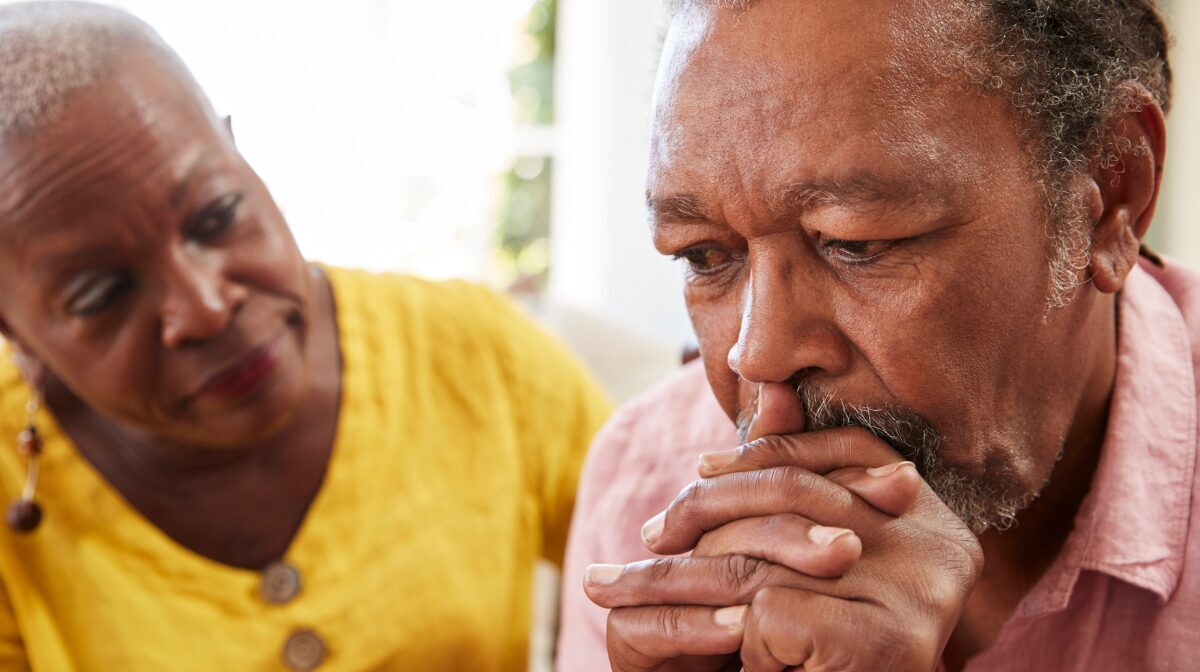Does health insurance cover anything besides medical expensese?
While health insurance typically covers visits to a health care provider and prescription medications, many plans also covers additional services to support a member’s overall health.
Read advice on how to determine if a loved one is struggling with clinical depression and learn when you need to seek professional help.

The signs and symptoms of depression can be subtle. Some people may find themselves sleeping a bit more or eating a bit less. Others may have a slight change in mood or personality. Others may experience headaches or just a feeling of unease.
It’s hard to know if someone you care for is suffering from depression, but it’s important to be aware of the signs and symptoms so that if they are struggling with mental illness, you can get help for them.
Understanding mental health conditions like depression and their impact can help you support your loved one better. Depression can have a major impact on all areas of life– it affects work, relationships, and overall health. When someone is suffering from depression, it’s all-encompassing and impacts every aspect of their being. That’s why we want to ensure that caregivers are aware of the signs of depression so that they can address them quickly and effectively.
Taking care of someone who is struggling with their mental health can be overwhelming and nuanced. It’s hard to know if their symptoms are clinical depression, or if they are simply, and once you know it’s depression, it can be difficult to navigate their care.
To help, we wanted to share the common signs and symptoms that can be indications of depression. If you notice your loved one struggling with any or all of these, it would be a good idea to seek professional help. If you would like to discuss the symptoms your loved one is experiencing, your Grayce Care Partner is a great resource. A Care Partner can discuss caregiving and mental illness, helping you find appropriate resources and navigate the process.
If you notice your loved one experiencing any of the following physical signs and symptoms, it may be an indication of depression or other mental illness.
If you notice your loved one experiencing any of the following emotional signs and symptoms, it may be an indication of depression or other mental illness.
If you notice your loved one experiencing any of the following behavioral signs and symptoms, it may be an indication of depression or other mental illness.
Most people with depression won’t exhibit all of the aforementioned signs and symptoms. Still, if you notice that your loved one is experiencing several signs or symptoms, or if you notice certain symptoms rapidly increasing, it’s important to intervene.
At Grayce, we recommend starting with a conversation with your loved one. Likely, they have also noticed the changes in their mood, physical health, and behavior. In that conversation, you should address the signs and symptoms you have noticed. Then, ask questions about what your loved one is feeling. It’s essential to ensure that your loved one expresses their needs honestly and has a safe space to share their vulnerability. Discuss what your loved one might be experiencing, but also allow them to process their own feelings and needs.
If you aren’t sure how to start this conversation, you can reach out to a trusted third party like a mental health professional or Grayce Care Partner. You can share what you have observed and work together to develop a plan. A care partner can also help you identify the symptoms and document any changes.
If you are concerned that your loved one may be suffering from depression, it’s important to seek professional help as quickly as possible. Depression is a mental illness that requires professional help to manage. A doctor or mental health provider can assess the symptoms you have observed and come up with a treatment plan. This plan may include therapy, medication, or both.
If your loved one is suffering from depression, you should never try to manage it alone. That said, if your loved one is in the care of a mental health professional and has an established treatment plan, there are some things you can do as a caregiver to support your loved one.
By intentionally addressing depression at home, you can help your loved one overcome the signs and symptoms they are experiencing and live a healthier life.
A few ideas are:
Your Grayce Care Partner can help you come up with ideas for supporting your loved one, as well as guide you in understanding how to navigate their care effectively.
Taking care of someone with a mental illness can be stressful and overwhelming, so as you work to support your loved one, make sure you are also taking care of yourself. Spend time taking care of your own physical and emotional needs in order to ensure that you are at your best for the people that you love.

Sign up to receive the latest resources and updates from Grayce.